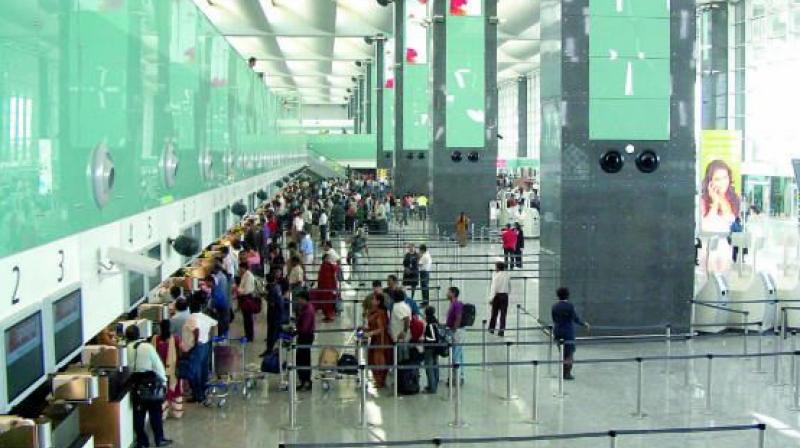After Delhi, Telangana too seeks full body scanner to stop terror

Hyderabad: The installation of full body scanners, popularly known as ‘naked scanners’, at Indian airports, has kicked off a controversy about privacy and the danger of radiation. Body scanners have been installed at GMR airport’s T3 terminal in Delhi on an experimental basis.
Central Industrial Security Force (CISF) and Customs at Hyderabad GMR airport and other airports too are asking for full body scanners, to combat the terror threat.
A source in the GMR Group said the airport operator has nothing to do with it. It was the decision of the Bureau of Civil Aviation Security (BCAS).
To allay the public’s fears, BCAS has said that unlike body scanners in the US that are penetrative, producing x-ray images, the one installed at Delhi airport is reflective and produces mannequin-like images. But air travellers are demanding more clarity on the issue.
Experts say that backscatter systems work by generating small amounts of x-rays that reflect off the skin of an individual and the US Transportation Security Administration was in the thick of a controversy over this.
According to noted radiologist Dr Chandrasekhar Ramamoorthy of Yasodha Hospital, “There are two types of body scanners — one is radiofrequency-based and the other is x-ray based. But in both cases, privacy concerns are there.”
Scanners may hit regulars
“As it reproduces a naked body contour, it is not acceptable, particularly to women. In some cases women have silicon breast implants and some patients wear medical equipment which they don’t want to show to others. It becomes a big embarrassment even for transgenders,” said noted radiologist Dr Chandrasekhar Ramamoorthy of Yasodha Hospital.
As far as the health hazard from X-ray scanners goes, he said there are two scenarios, depending on the dose of radiation. “People, who travel regularly, for instance 15 times a month, may develop skin cancers and issues related to fertility. But even short term exposure and less radiation will affect women in the early stages of pregnancy and infants. The ionising radiation affects the skin.”
Experts suggest using non X-ray body scanners to avoid health hazards but that still leaves concerns about privacy.
D. Varada Reddy, president of the Air Travellers Association of India, said that in view of security concerns it is a welcome move, but there are some serious concerns. “Only suspects should be allowed to pass through the scanners and normal passengers should not be. Customs has a list of suspected smugglers,” he said.

